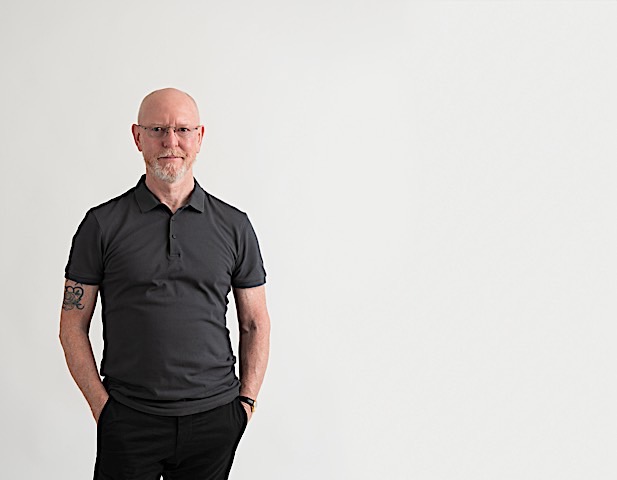Sparking a Successful Business Journey: Mastering the Five-Line Model
Hello ,
Recently, a middle school teacher asked for advice on social media about starting a business. His query struck a chord with me as I embarked on a similar journey two decades ago. After some initial hiccups, I was fortunate to find a mentor who introduced me to an invaluable business framework called the Five-Line Model. This model has been instrumental in running my marketing firm successfully. Knowing my previous articles on the Five-Line Model gives you a better picture of my suggested approach. I will guide you on how this particular teacher might shift to self-employment.
To shift from teaching to business can be one hell of a leap to make. Entrepreneurship is unpredictable and prone to failure. Teachers have numerous transferable skills, but the key lies in identifying and leveraging your unique expertise. The challenge is to decide whether to capitalise on your knowledge or hands-on skills for a more rewarding and profitable venture.
Leveraging Your Knowledge and Skills
To survive in the knowledge economy, you need unique skills and experiences that set you apart in the market. Such differentiation helps shield you from the competition and makes your services indispensable. Constantly honing your expertise allows you to demand higher fees in the long run. As you know, I support older professionals with unique expertise, career capital and a solid network to make the shift.
While teachers possess various skills, they must pinpoint abilities that can directly generate revenue. Take the time to reflect on your niche skills, passions, and hobbies that might point towards profitable ventures. Can you leverage your woodworking expertise or craft to create a marketable product? You may have valuable coding skills that can facilitate your transition. However, given the rise of AI tools, it's crucial to possess a distinct and practical ability to solve pressing problems.
Consider Buying an established Business.
Another idea may be to consider buying an existing business from a retiring baby boomer. In the US, this can be up to 10,000 per day, with up to 350,000 baby boomer businesses sold yearly. [1] Bringing a unique and fresh touch to rejuvenate a stale business model might offer a rewarding outcome.
Mastering the Five-Line Model
Successful entrepreneurship requires an understanding of the essential financial components as outlined in the Five-Line Model as a simple yet comprehensive framework:
- Revenue
- Cost to make or buy products/services (Cost of Goods Sold
- Cost of sales and marketing
- Operating costs (rent, utilities, admin)
- Profit (revenue minus expenses)
This model, used as a framework, tells you everything you need to do in a business, what to manage and provide resources for. It can help you set competitive yet profitable prices, control costs, and maximise profit. Acquiring this financial acumen is crucial before you embark on an entrepreneurial journey. Each line in the model illuminates an essential aspect of business management, with the actual work concentrated in lines 2, 3, and 4.
Evaluating Your Revenue Potential
Generating enough revenue is likely the biggest challenge. You would have to earn much more to accommodate business expenses and match a teaching salary. Understand that building a solid client base and steady cash flow takes time. Any teacher venturing into entrepreneurship needs realistic revenue projections, especially for the initial years.
Exploring Paths Forward
To kick-start a business, consider these potential routes:
- Get some career advice to hone in on the activities that will motivate you
- Acquiring a part-time job while launching your venture
- Staying part-time at your teaching job initially
- Gaining a new qualification or certification
- Working in industry for several years to build up career capital
- Purchasing an established business in your field
- Hiring a consultant to get you moving and streamline your operations
Select the path that aligns most effectively with your present resources and limitations. The Five-Line Model serves as a helpful tool to calculate revenue and costs, offering guidance for your financial decisions and maximising your chances of achieving success.
Starting on the Entrepreneurial Path
Transitioning from teaching to entrepreneurship demands courage, strategic planning, and a commitment to lifelong learning. Despite my reservations based on experience, I believe that professionals with valuable career capital and business experience stand a better chance of success. With targeted technical training in your area of interest, a teacher's natural abilities to connect, explain, and manage groups can be a tremendous asset to any team. Getting up to speed on the hard skills may take some time, but your core talents will provide a running start. You already have what it takes to evolve your career. You can successfully transition from middle school teacher to tech professional with patience, persistence, and belief in your untapped potential.
Notes: [1] https://www.businessdit.com/baby-boomer-business-owner-statistics/
Cheers
Nigel Rawlins
https://wisepreneurs.com.au/
PS. My 16th Wisepreneurs Project Podcast was published on Sunday with my guest, Lisa-Marie Cabrelli, a Renaissance Woman. You will see why in this second appearance since she completed her PhD in Literature. Lisa-Marie has a fabulous story about her entrepreneurial journey from actress to software developer to digital nomad, and she is now about to present her updated life coaching program, the Heroines Adventure.
https://wisepreneurs.com.au/lisa-marie-cabrelli-renaissance-woman/





